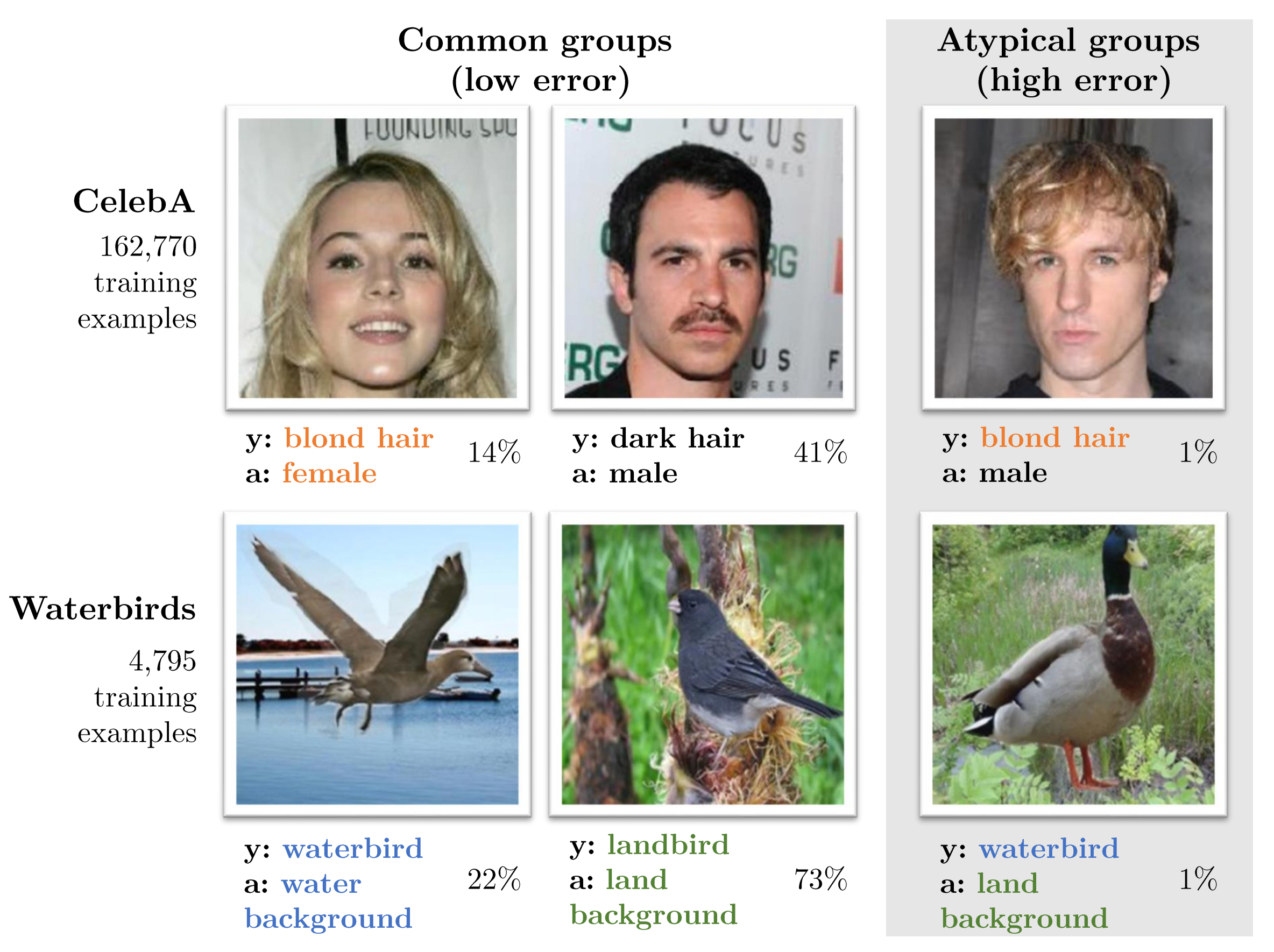SpuCo is a Python package developed to further research to address spurious correlations. Spurious correlations arise when machine learning models learn to exploit easy features that are not predictive of class membership but are correlated with a given class in the training data. This leads to catastrophically poor performance on the groups of data without such spurious features at test time.
Link to Paper: https://arxiv.org/abs/2306.11957
The SpuCo package is designed to help researchers and practitioners evaluate the robustness of their machine learning algorithms against spurious correlations that may exist in real-world data. SpuCo provides:
- Modular implementations of current state-of-the-art (SOTA) methods to address spurious correlations
- SpuCoMNIST: a controllable synthetic dataset that explores real-world data properties such as spurious feature difficulty, label noise, and feature noise
- SpuCoAnimals: a large-scale vision dataset curated from ImageNet to explore real-world spurious correlations
- SpuCoSun: a large-scale vision dataset with created using backgrounds from SUN397 (class feature) and foregrounds (spurious feature) created using a text-to-image diffusion model corresponding to OpenImagesV7. Two versions of this dataset are provided: SpuCoSun Easy and SpuCoSun Hard with easy and hard spurious features, respectively.
Note: This project is under active development.
Refer to quickstart for scripts and notebooks to get started with SpuCo
Google Colab Notebooks:
pip install spucoRequires >= Python 3.10
Creating gpu-affinitized queues
for i in {0..7}; do guild run queue -b --gpus="$i" -y; done
This package is maintained by Siddharth Joshi from the BigML group at UCLA, headed by Professor Baharan Mirzasoleiman.
